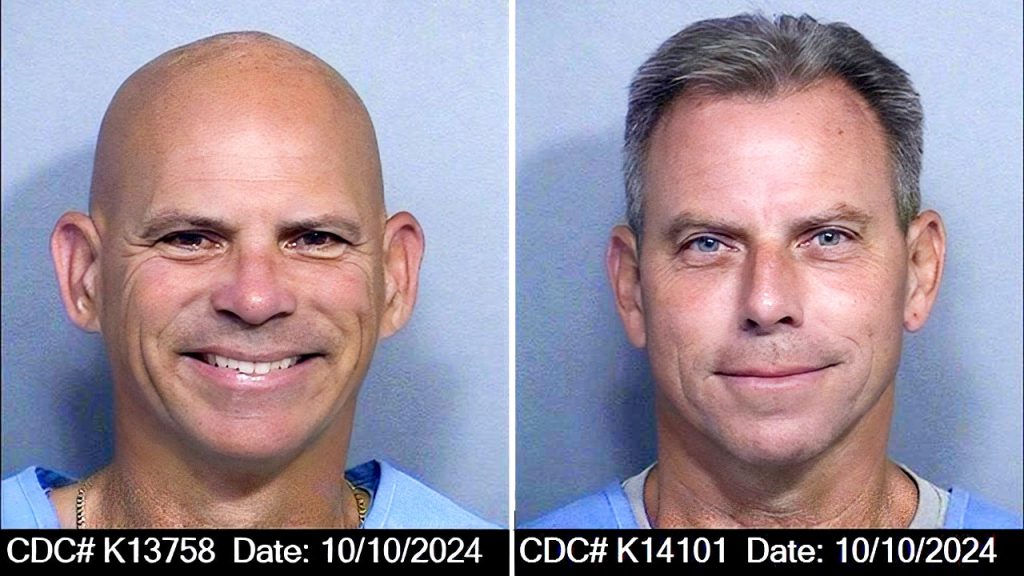The potential resentencing of Lyle and Erik Menendez, convicted in 1996 for the brutal murder of their parents, has become embroiled in controversy surrounding a purported conflict of interest involving the Los Angeles County District Attorney’s Office. Relatives of the Menendez brothers, divided in their support for resentencing, have raised concerns about the impartiality of the District Attorney’s review of the case. This controversy stems from the employment of Kathleen Cady, a former attorney for Milton Andersen, the brothers’ uncle and a staunch opponent of their release, within the new District Attorney Nathan Hochman’s office. While Hochman’s office has dismissed the conflict of interest claims as meritless, the issue highlights the complex and emotionally charged nature of the case, which has been reignited by recent documentaries and allegations of abuse by the Menendez brothers against their deceased father.
The core of the conflict centers on the relationship between Cady, now the director of the LA County DA’s Bureau of Victim Services, and Milton Andersen, who has consistently opposed any leniency for his nephews. Andersen, whose sister Kitty Menendez was murdered alongside her husband Jose by the brothers, maintains that the claims of abuse are fabricated and that the brothers deserve to serve their life sentences without parole. The concern raised by some relatives supporting the Menendez brothers’ release is that Cady’s presence in the DA’s office could influence the decision-making process regarding their resentencing, potentially disadvantaging the brothers’ chances for a reduced sentence. The DA’s office, however, insists that all family members of the victims have been invited to express their views, and that these consultations will inform the final decision. The office emphasizes its commitment to a thorough and impartial review of the case, despite the alleged conflict.
The Menendez brothers’ case has been marked by shifting narratives and legal maneuvers since their initial arrest in 1989. Their first trial, which captivated the nation with its lurid details of wealth, privilege, and shocking violence, ended in a hung jury. The subsequent trial resulted in convictions and life sentences without parole. The brothers have consistently maintained that they acted in self-defense, driven by years of alleged sexual and emotional abuse at the hands of their father. These claims, initially met with skepticism, have gained traction in recent years through documentaries and new allegations, including testimony from a former member of the 1980s boy band Menudo and a purported letter written by Erik Menendez before the murders. These developments have fueled public debate about the brothers’ guilt and the appropriateness of their sentences.
The legal landscape surrounding the case has also shifted. California’s new resentencing law offers a potential avenue for reduced sentences for individuals convicted of murder, even those previously sentenced to life without parole. Former DA George Gascon, known for his progressive stance on criminal justice reform, initiated the process for the Menendez brothers’ resentencing before leaving office. His successor, Nathan Hochman, has pledged a comprehensive review of the case, considering all available evidence and perspectives before reaching a decision. This review is further complicated by a separate habeas corpus petition filed by the brothers, which introduces new evidence supporting their claims of abuse. This petition, coupled with the conflict of interest concerns, creates a multifaceted legal challenge for the DA’s office.
The relatives of Jose and Kitty Menendez remain deeply divided over the prospect of the brothers’ release. While Milton Andersen and some other relatives remain steadfast in their opposition to any leniency, a significant number of family members, including Kitty Menendez’s sister, support the brothers’ bid for freedom. This internal family conflict adds another layer of complexity to the case, underscoring the enduring emotional scars left by the murders. The differing perspectives within the family reflect the broader societal debate about the nature of justice, the impact of childhood trauma, and the possibility of rehabilitation.
The ultimate fate of the Menendez brothers remains uncertain. The DA’s office is tasked with navigating a complex legal landscape, balancing the demands of justice with the evolving understanding of the brothers’ case. The conflicting viewpoints of the victims’ family members, the potential conflict of interest, the new evidence introduced in the habeas corpus petition, and the ongoing public debate surrounding the case all contribute to a challenging decision-making process. Governor Gavin Newsom’s decision to defer action on a clemency petition until the DA’s review is complete further highlights the significance of the upcoming decision. The Menendez brothers’ case continues to be a potent reminder of the complexities of the criminal justice system and the enduring power of family secrets and trauma.

